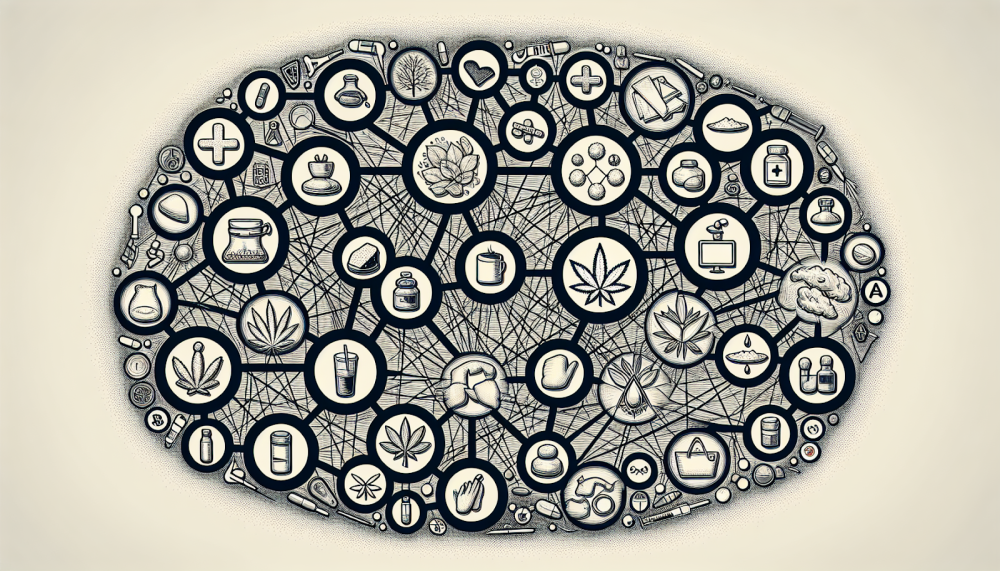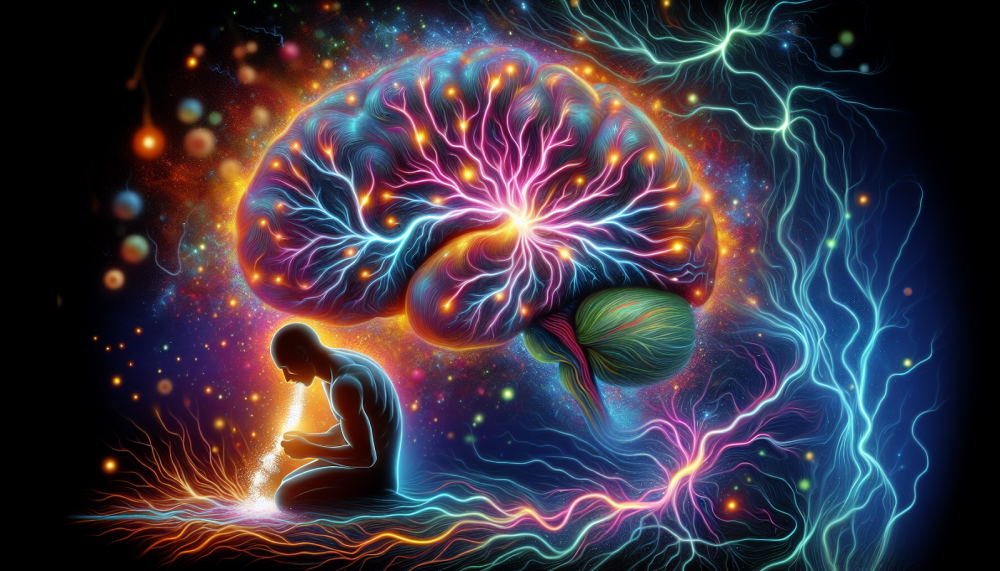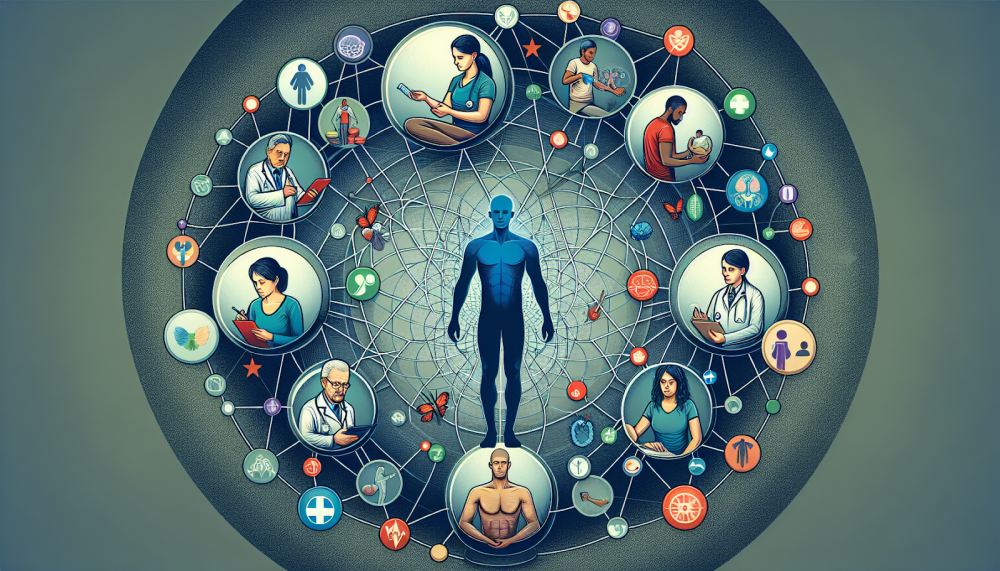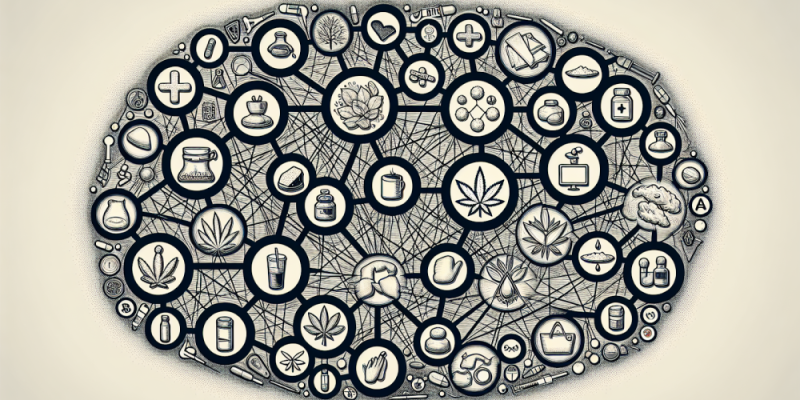Myths about addiction often muddy the waters of understanding this complex issue. Is addiction really a choice? A matter of weak willpower or moral deficiency? The answer is not as straightforward as these myths suggest. This article goes beyond simple misconceptions, offering evidence-based insights into what addiction is—and isn’t. As we debunk these addiction myths, you’ll gain a clearer, more empathetic perspective on addiction and those affected by it.
Key Takeaways
- Addiction is not a choice nor a sign of weakness or moral failure; it’s a complex medical condition influenced by genetics, environment, and psychology.
- Effective addiction treatment is multifaceted, combining medical care, counseling, lifestyle changes, medication, as well as psychological and behavioral therapies.
- Relapse is a common but not definitive part of the recovery process, highlighting the need to seek treatment at a for long-term support and tailored strategies to prevent relapse and maintain sobriety.
Debunking Drug and Alcohol Addiction Myths: The Truth Behind Common Misconceptions
The essence of addiction is often shrouded in misconceptions and obscured by a complex web of myths that distort its true nature. It does not discriminate, affecting all sorts of people across various walks of life, whether they lead chaotic or structured lives. Thus, it’s essential to dispel the fog surrounding this topic and illuminate the reality about addiction.
Entertaining prevalent myths about addiction can be just as damaging as the condition itself since such beliefs fuel stigma and impede progress towards recovery from alcohol and drug abuse. By dismantling these widespread falsehoods, we foster compassion, insight into the matter at hand, and most crucially an environment conducive to successful treatment for those struggling with substance abuse. So let us unveil what really lies behind these most common myths about people struggling with addiction.
Myth #1: Addiction Is a Choice
Repeatedly, we encounter the assertion “Addiction is a choice,” but this statement couldn’t be farther from the truth. In fact, addiction arises as a severe disorder of the brain, emerging under the influence of genetic predisposition, environmental contexts and various other factors. It shares similarities with diseases like diabetes or heart disease in terms of being an involuntary health condition.
This myth continues to persist despite evidence to the contrary because initially taking a substance indeed involves personal agency. Yet when addiction embeds itself deeply within someone’s life, their capacity for choice diminishes substantially—akin to being caught in a strong river current. Entering voluntarily is one thing, but escaping its forceful pull requires more than just deciding to walk away.
Recognizing addiction for what it truly is—a chronic illness or disease rather than a character defect—is imperative. This recognition paves the way for compassion and lays down fertile ground for effective treatment strategies. To tackle such intricate challenges associated with substance use disorders effectively demands that those afflicted actively seek out appropriate treatment options.
Myth #2: Only Weak People Get Addicted
The prevalent, yet incorrect, addiction myth is a sign of weakness that continues to be echoed by many. The truth is that anyone can become addicted regardless of:
- their ethnicity
- background
- character traits
- academic performance
Rather than stemming from a deficiency in personal fortitude or moral fiber, addiction results from an intricate combination of contributing factors involving genetic predispositions, societal influences, brain chemistry and psychological conditions. It’s time to put an end to this obsolete idea. What deserves our attention are the genuine elements contributing to addiction.
Myth #3: Addiction Is a Moral Failing
Dispelling the myth that addiction reflects a lack of moral strength is essential. It is not an indication of poor character or a person being at the “rock bottom” of their life. Rather, it’s acknowledged as a disease. As with any health concern, proper treatment — free from judgment or censure — is absolutely necessary.
The misconception that addiction equates to moral weakness can act as a barrier for those needing to seek treatment, exacerbating the stigma associated with substance use disorders. Most importantly, this fallacy about people struggling with addiction proposes that the person has full control over the effects that drugs have on their bodies. Further, this notion assumes that a loved one can just show a little “tough love” to the addicted person when addiction takes hold of their life.
This myth that addiction is a moral failing and that people struggling with it can be a “lost cause”, is dangerous and not supportive in the rehab process. It’s crucial to put these addiction myths to rest and recognize drug abuse for what it genuinely represents—a medical issue that demands empathetic attention and efficient treatment.
Understanding Substance Use Disorders

Imagine substance use disorders existing along a continuum that stretches from minor to acute severity. The disease doesn’t conform to a uniform standard because each person’s encounters and struggles with addiction are as distinctive as they are. One addiction is no better or worse than another.
What types of substances come into play when discussing this issue? How should you interpret the presence of a substance use disorder in a person? It’s time to dive into these questions for better understanding.
Types of Substances
The word ‘substance’ encompasses a broad range of items that have the potential to cause addiction, such as:
- alcohol
- marijuana
- prescription medications
- methamphetamine
- cocaine
- opiates
- hallucinogens
- inhalants
- heroin
It’s critical to recognize that prescription drugs are not inherently risk-free or devoid of addictive properties simply because they come with a doctor’s approval. Prescription medications may be equally as addictive as illicit substances and pose significant dangers. One should never be misled by the label ‘prescription’. The reality is that addiction makes no distinctions regarding whether a substance is legal or not.
Criteria for Diagnosing a Substance Use Disorder
Identifying a substance use disorder goes beyond simply ticking boxes. It involves an intricate evaluation of the person’s behavior, their physical well-being, and how they interact with others socially. The Diagnostic and Statistical Manual of Mental Disorders (DSM-5) offers a detailed list for identifying such disorders based on behavioral patterns that indicate:
- compromised self-control
- difficulties in social settings
- hazardous engagement with substances
- biological indicators like developing tolerance or experiencing withdrawal symptoms.
For a diagnosis to be made according to, at least two out of eleven outlined criteria need to be met by the individual in question. Severity is gauged by the number of criteria fulfilled. Criteria capturing severity include aspects such as:
- Consumption amounts exceeding original intent.
- Consistently failed attempts at cutting down usage.
- Excessive time invested in procuring, consuming or recuperating from the effects of substances.
- Persistent consumption even when facing ongoing social problems or exacerbation of chronic health issues.
The Science Behind Addiction

Drug and alcohol addiction is not merely a result of poor decision-making or weak self-control. It’s a condition that alters the chemical and physical makeup of the brain. This disease disrupts normal impulse management and intensifies an increasing desire for alcohol, which can lead to permanent alterations in how the brain processes pleasure due to extended exposure to this addictive substance.
To better understand addiction’s nature, we must examine more closely its impact on brain function and recognize the factors that may increase one’s vulnerability to becoming addicted.
How Substances Affect the Brain
The consumption of a substance with addictive properties is more than just experiencing temporary euphoria. It actively engages with the brain, modifies neurotransmitter operations and fundamentally changes how your brain functions. These alterations can profoundly affect self-regulation, decision-making abilities, and may generate powerful compulsions to use drugs.
Drugs such as cocaine, opioids or nicotine trigger an excessive release of dopamine within the reward circuits of the brain—much more so than natural rewards would typically cause. As this process repeats over time, the brain’s responsiveness to dopamine diminishes, leading to increased tolerance by users who require larger quantities of these substances in order to achieve equivalent levels of satisfaction. This escalating cycle often culminates in addiction, which underscores the significant influence that these substances can have on neural activities.
Risk Factors for Developing an Addiction
Addiction isn’t an isolated phenomenon. It is shaped by a complex array of factors that include genetic makeup, the environment one inhabits, and various psychological elements. The influence from your close relationships—such as those with family members and friends—as well as your broader social interactions and economic background substantially affects your susceptibility to developing addictive behaviors.
Residing in underserved communities where resources are scarce can elevate instances of substance use, encompassing alcohol abuse specifically. Disorders related to substance use often coincide with other psychiatric conditions including anxiety, depression, or bipolar disorder. These conditions have a potential synergistic effect that exacerbates each other. Thus, while personal choices play a crucial role in addiction genesis, appreciating the wider spectrum within which these decisions occur is equally imperative for comprehensive understanding.
Effective Treatment Options for Addiction

In addressing addiction, it’s critical to understand that a singular approach often fails to suffice. A successful treatment typically involves an array of strategies that may consist of:
- Medical attention
- Psychological counseling
- Modifications in daily habits
- Pharmaceutical intervention
The focus should be on healing the individual as a whole, rather than solely targeting their addictive behaviors. To explore some efficacious methods for treating such conditions, we consider avenues like medication-assisted treatment (MAT), various behavioral therapies and comprehensive holistic addiction treatment.
Medication-Assisted Treatment (MAT)
Treatment for addiction that includes medication assistance is an integrated strategy which pairs pharmaceutical interventions with counseling and various behavioral therapies. This approach dispels the misconception of substituting one dependency for another, as the medications employed in MAT do not produce euphoria or lead to cognitive impairment.
Employing such treatment methods as, has been shown to effectively diminish urges and alleviate withdrawal discomfort linked to substance dependence, enhancing patient adherence and success rates while fostering enduring recovery efforts. There exists robust support from clinical evidence regarding the efficacy of specific drugs like disulfiram, naltrexone, and methadone in these contexts.
It’s important to consider MAT as yet another critical instrument within the comprehensive arsenal available for treating addiction. A tool designed to provide additional support on an individual’s journey towards recovery.
Behavioral Therapies
Treatment for addiction extends well beyond the use of medications, behavioral therapies being vital components. Techniques like cognitive-behavioral therapy (CBT) and contingency management are instrumental in helping patients modify their drug-related attitudes and behaviors, which is essential for relapse prevention.
Combining psychotherapy methods, including behavioral therapies with medication-based treatments or pharmacotherapy, has proven to amplify results when addressing drug abuse. Thus, while drugs may alleviate physical symptoms associated with addiction, it’s through behavioral therapies that psychological and habitual aspects are effectively managed.
Holistic Approaches
Holistic strategies are integral to effective addiction treatment, integrating medication and behavioral therapies with alternative practices that encompass the entire individual. This broad method includes activities such as yoga, acupuncture, and nutritional advice in conjunction with standard treatments to facilitate a thorough recovery journey.
Fundamentally, holistic therapy understands that drug abuse and alcoholism impacts all aspects of an individual’s life. It aims at nurturing various dimensions of health by helping people establish a more balanced and wholesome lifestyle which promotes sustained recovery.
The Role of Support in Recovery

Experiencing addiction can lead one to feel isolated. The journey toward recovery needs not be undertaken alone. The role of family members, close friends, and various support groups is pivotal in this process as they offer a network of accountability, inspire with their encouragement, and contribute to building a community that fosters healing.
Understand the importance of these relationships during rehabilitation from addiction. It’s imperative we examine how loved ones and peer support circles function within the scope of recovery.
Family and Friends
Support from friends and family can act as a crucial anchor throughout the process of recovery. The presence of such support not only bolsters the likelihood of sustaining sobriety, but also plays a pivotal role in staving off relapse. Effective support transcends mere presence, encompassing active encouragement towards healthy habits and involvement in family therapy to mend strained bonds.
Cultivating robust relationships characterized by unwavering love and backing is fundamental for enduring success in recovery. If you are close to someone on this journey, bear in mind that your contribution is significant. Your steadfastness can indeed be transformative.
Support Groups
Groups designed for addiction support, such as Alcoholics Anonymous (AA) and Narcotics Anonymous (NA), offer individuals a secure space to exchange their recovery stories, gain motivation, and absorb wisdom from peers traversing comparable journeys toward sobriety. These gatherings have been linked with diminished substance use and heightened participation in addiction treatment programs, according to studies backed by the National Institute of Health, as well as the National Institute on Drug Abuse (NIDA).
These supportive groups extend beyond mere storytelling. They cultivate more constructive coping mechanisms and enhance personal empowerment. They also provide a community framework which can mitigate feelings of solitude and seclusion that frequently accompany the recovery process.
The Reality of Relapse and Recovery
Relapse should be viewed as a typical element of the recovery process, not an indication of treatment failure or personal defeat. Similar to recurring episodes in other chronic diseases, it’s a normal aspect of the journey towards recovery.
Relapse Rates and Triggers
The occurrence of relapse, especially during the first year following treatment, is a frequent event. that:
- Within the initial year after substance abuse treatment, 40% to 60% of individuals have a setback.
- As many as 85% might go through a period of relapse.
- Within mere weeks from initiating their addiction treatment, two-thirds resume using drugs.
Such elevated rates of setbacks highlight the critical importance of robust strategies for preventing relapses and sustained support systems within addiction recovery programs. Indeed, achieving sobriety should be seen not merely as an end goal, but rather as an ongoing process.
Strategies for Preventing Relapse
Maintaining long-term recovery significantly involves averting a relapse. Continual support to thwart a setback can come from various sources, including aftercare services, alumni programs, and residences dedicated to sober living.
Involvement in alumni programs may deliver sustained backing by facilitating group therapy sessions, interactions with peers also on the path of recovery, and fostering the acquisition of strategies for effective coping. Sober living houses provide an environment that is both organized and moderately flexible, which serves individuals in recovery well by diminishing the likelihood of relapse. It’s important to acknowledge that recovery extends over one’s entire life span. Hence these measures are instrumental in smoothing out this enduring voyage.
Debunking Common Myths about Addiction Help Break Down Barriers to Seek Treatment
We have thoroughly explored the intricacies of substance use disorders, dispelled misconceptions, comprehended the complexities surrounding addiction’s causes and impacts on the brain, and examined various effective treatment options. It has become evident that addiction is a disorder rooted in brain chemistry rather than being a result of personal choice or ethical deficiency. This condition can impact any individual regardless of their perceived resilience or moral fiber.
A comprehensive strategy for treating these disorders involves medical interventions, therapeutic counseling, lifestyle adjustments, and appropriate medication use. The role played by family members’ involvement as well as peer support groups cannot be overstated. They provide invaluable community bonds as well as motivation and accountability throughout someone’s journey to recovery. Importantly acknowledging relapses are not indications of defeat, but instead recognized parts within the broader process towards recovery underscores our understanding that with proper knowledge reinforcement along with sustained support mechanisms in place, achieving recovery from substance use issues is an attainable goal.
Frequently Asked Questions
Is addiction really a brain disorder, or is it just a choice?
Addiction is indeed a brain disorder influenced by various factors, similar to how you can’t choose to have diabetes or heart disease. It’s not simply a matter of choice.
Can anyone become addicted, or is it just weak people?
Addiction can affect any individual, no matter how strong they may seem. This susceptibility is driven by several factors that encompass genetics, environmental influences, and psychological aspects.
Thus, it isn’t a simple case of someone’s “weakness.”
Are prescription drugs safe and non-addictive?
Prescription drugs can indeed be dangerous and potentially addictive, despite being medically prescribed. It’s crucial to exercise caution because their prescription status does not automatically make them harmless or free from risk.
What role do family and friends play in addiction treatment and recovery?
The involvement of family and friends is pivotal in enhancing the recovery process as their support substantially increases the likelihood of achieving sustained sobriety and preventing relapse. This engagement serves as a transformative element in successful recovery efforts, especially during!
What are some effective strategies for preventing relapse?
In order to prevent a relapse, it’s advisable to engage with aftercare services, join alumni networks, or reside in sober living facilities. Engaging in these alternatives ensures continuous backing and assists in honing the coping strategies needed for an effective journey towards recovery.
